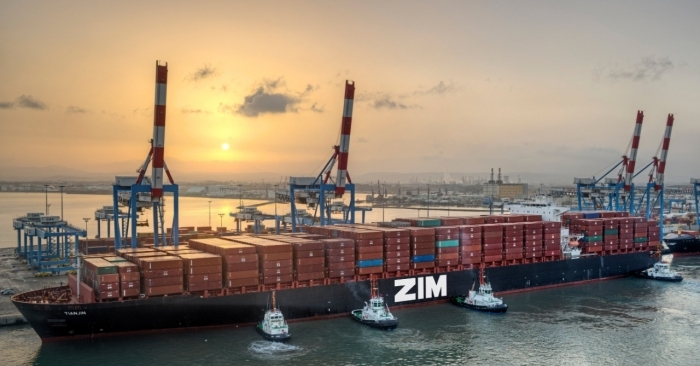ZIM spends $870 million to charter 13 vessels
NYSE-listed Israeli carrier ZIM Integrated Shipping Services signed a charter agreement with Navios Maritime Partners L.P. to charter thirteen container vessels.

February 11, 2022: NYSE-listed Israeli carrier ZIM Integrated Shipping Services signed a charter agreement with Navios Maritime Partners L.P. to charter thirteen container vessels.
The deal includes five second hand vessels and eight newbuild vessels for total charter hire consideration of approximately $870 million, according to a statement from ZIM.
The five second hand vessels, which range from 3,500-4,360 TEUs, are expected to be delivered in the first and second quarters of 2022 and will be deployed across ZIM's global network.
The eight 5,300 TEU wide beam newbuilds are scheduled to be delivered during the third quarter of 2023 and through the fourth quarter of 2024. “They are expected to be deployed in trades between Asia and Africa. The charter duration of the secondhand vessels is up to 4.5 years while the charter duration of the newbuild vessels is up to 5.3 years."
Eli Glickman, President & CEO, ZIM said: "With this latest chartering transaction, we continue to execute on our strategy of chartering-in highly versatile vessels to best serve our customers and meet significant and sustained demand across our global network. This transaction enhances our position as a global-niche operator, contributing immediate much needed tonnage in required sizes, as well as securing additional high-quality and cost-effective capacity to meet growing demand in the future."
For the first nine months ended September 30, 2021, ZIM had carried 2.6 million TEUs - an increase of 28 percent from 2020. Average freight rate per TEU had more than doubled to $2,510.
While revenue zoomed to $7.3 billion, net income came at $2.9 billion. Net cash generated from operating activities was $3.97 billion for the first nine months of 2021 compared to $466 million in 2020.



